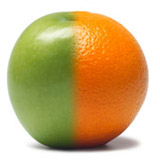A Philosopher's Dozen
Selections from the writings of Stephen Yablo
Why are some sentences paradoxical while others are not?
SINCE RUSSELL, THE UNIVERSAL ANSWER has been circularity, and more especially, self-reference.
Not that self-reference suffices for paradox. Such a view is refuted by the work of Gödel and Tarski, and by various commonsense examples, such as “For the last time, stop that racket!,” and “So dear Lord to Thee we raise, this our hymn of grateful praise.”
What many do seem to think is that some sort of self-reference, be it direct or mediated, is necessary for paradox. So one often hears that the surest way of keeping a language paradox-free is to impose an absolute ban on all self-reference. “This may be using a cannon against a fly,” it is said, “but at least it stops the fly.”
Except that it does not stop the fly: paradoxes like the Liar are possible in the complete absence of self-reference. Imagine an infinite sequence of sentences S1, S2, S3,....., each to the effect that every subsequent sentence is untrue:
(S1) for all k >1, Sk is untrue
(S2) for all k >2, Sk is untrue
(S3) for all k >3, Sk is untrue
Suppose for contradiction that some Sn is true. Given what Sn says, for all k>n, Sk is untrue. Therefore (a) Sn+1 is untrue, and (b) for all k>n+1, Sk is untrue. By (b), what Sn+1 says is in fact the case, whence contrary to (a) Sn+1 is true! So every sentence Sn in the sequence is untrue. But then the sentences subsequent to any given Sn are all untrue, whence Sn is true after all! I conclude that self-reference is neither necessary nor sufficient for Liar-like paradox. •
Yablo's Paradox
The logic puzzle named after Stephen Yablo

